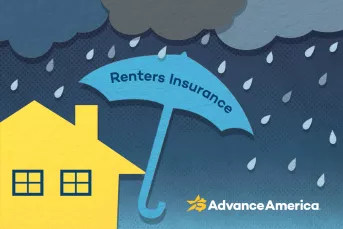
Earned Income Tax Credit: What Is it, and Who Qualifies?
The earned income tax credit (EITC) is a tax break for low- to moderate-income workers that can lower your tax bill or, in some cases, increase your refund.
Knowing how it works can help you feel more confident when it’s time to file your taxes.
What is the earned income tax credit?
The EITC is designed to support people who are working but still face financial challenges. It’s often available to families with children, people with disabilities, or those earning within certain income limits.
This credit can reduce the taxes you owe, and if the credit is larger than your tax bill, you may receive the difference as a tax refund. That extra money can help cover daily expenses like groceries, bills, or utilities.
Eligibility depends on your income, filing status, and number of qualifying dependents. Even if you don’t owe taxes, you could still benefit from the EITC if you meet the requirements.
Definition of earned income
Earned income is any money you make from working. That includes any salary, wages, or tips you receive.
Earned income can come from traditional employment or non-traditional work, such as:
- W-2 jobs where federal taxes are withheld
- Self-employment
- Certain disability or union strike benefits
- Household employee wages (nannying, caregiving, housekeeping)
- Unreported tips
- Medicaid waiver payments that are not on your 1040 form
- Gig or freelance work where taxes aren’t withheld, like:
- Rideshare or delivery driving
- Pet sitting or dog walking
- Selling goods or services online
Some types of income don’t count toward the EITC, including:
- Child support or alimony
- Social Security or pension payments
- Unemployment benefits
- Money received while incarcerated
- Interest or dividend income
The only exception is nontaxable combat pay, which you can choose to include if it helps you qualify.
Who is eligible for the earned income tax credit?
Eligibility for the earned income tax credit depends on your earned income, adjusted gross income (AGI), filing status, and household size. To qualify, your income must fall below the IRS’s yearly limits.
Here are the general requirements:
- You must have earned income
- Your investment income must be below the annual limit (this changes each year)
- You must be a U.S. citizen or resident for the entire tax year and have a valid Social Security number
- You cannot claim the EITC on foreign-earned income
- You must meet specific requirements if you’re married but not filing jointly
You don’t need to have kids to qualify for the EITC, but households with multiple children tend to receive larger credits — especially if income is on the lower side.
Special rules may apply if you’re in the military, clergy, or have a disabled family member. Use the IRS qualification assistant if you think this is the case. You might still be eligible for the earned income tax credit even if you’re single or don’t have a child.
➢RELATED: How to Get Your Tax Refund Early
2024 earned income tax credit table (for taxes filed in 2025)
The maximum earned income for single filers ranges from $18,591 to $59,899, and for joint filers, from $25,511 to $66,819 — depending on how many dependents you have.
For the 2024 tax year (filed in 2025), the EITC ranges from $632 to $7,830.
2024 EITC Income Limits | |
|---|---|
No qualifying dependents | $632 |
1 qualifying child | $4,213 |
2 qualifying children | $6,960 |
3+ qualifying children | $7,830 |
Source: IRS.gov
2025 earned income tax credit table (for taxes filed in 2026)
Income limits increased slightly for the 2025 tax year. The maximum earned income for single filers ranges from $19,104 to $61,555, and for joint filers, from $26,214 to $68,675.
The 2025 EITC amounts range from $649 to $8,046.
2025 EITC Income Limits | |
|---|---|
No qualifying dependents | $649 |
1 qualifying child | $4,328 |
2 qualifying children | $7,152 |
3+ qualifying children | $8,046 |
Source: IRS.gov
How to claim the earned income tax credit
The first step to claim your earned income tax credit is to file a federal tax return using Form 1040. If you have qualifying children or dependents, you’ll also need to complete a Schedule EIC.
You can do your taxes online, with a tax pro, or through IRS Free File options.
When to expect your refund
By law, the IRS can’t send refunds for EITC claims until mid-February. If you file early and everything checks out, here’s what to expect:
- You’ll likely see an update by February 22
- Direct deposit refunds should arrive by March 3
These dates apply if:
- You filed your tax return electronically
- You chose direct deposit for your refund
- The IRS didn’t flag any issues with your return
Note: Weekends and federal holidays may delay your deposit, depending on your bank’s processing times. You can track your refund status at IRS.gov.
Earned income tax credit FAQs
Can I qualify for the EITC if self-employed?
Yes! If you’re self-employed, your income may count for the EITC. That includes freelance work, gig jobs, or running your own business. Just make sure you report your income and expenses accurately, as your eligibility still depends on your total income, filing status, and other IRS rules.
Is the earned income tax credit a refund?
It can be. The EITC is a refundable tax credit, meaning it can lower the amount of federal income tax you owe. If your credit is bigger than your tax bill, you’ll get the difference as a refund.
Can I claim the EITC if my income changed during the year?
Yes. The IRS looks at your total income for the year, not how it changed month to month. So, even if your earnings went up or down during the year, you may still qualify.
Does the EITC affect other benefits?
Usually not. Receiving the earned income tax credit won’t reduce benefits like SNAP, SSI, or housing assistance. Since it’s a tax credit, not income, it’s not typically against most federal benefit programs.
Notice: Information provided in this article is for informational purposes only. Consult your attorney or financial advisor about your financial circumstances.


